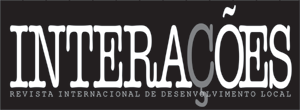Abstract
This article proposes to reconstruct and analyze the narrative on the theme of productive inclusion present in family farming public policies inserted in the Brazil Without Misery Plan (PBSM) from the government perspective. For this, an exploratory research was conducted using government reports and other secondary sources that deal with the subject. The PBSM presents a contextualization that explores the narrative about poverty in rural Brazil. However, there is no specific policy of productive inclusion, but the advancement of a set of complementary policies within the PBSM that sought to promote the socioeconomic dynamics of the beneficiaries. The attempt to overcome the extreme poverty of the rural area, therefore, required the intersectoral action of the State. With the recent changes in the political landscape, the issue of poverty is being resumed and the topic of productive inclusion on the political agenda has cooled, although sooner or later these themes will need to be taken up together to promote the reduction of rural poverty through productive inclusion actions with family farmers.
Keywords
Brazil Without Misery Plan; poverty; territories; rural development

 Thumbnail
Thumbnail
 Thumbnail
Thumbnail
 Thumbnail
Thumbnail
 Fonte:
Fonte:  Fonte:
Fonte:  Fonte:
Fonte: